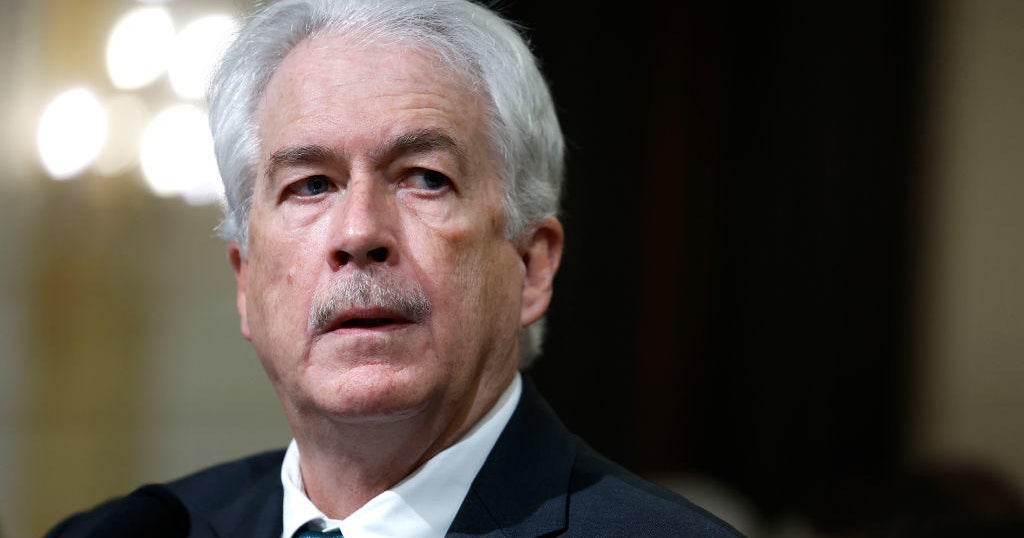CIA memo describes "catlike" team members in interrogation sessions
Newly declassified cables describing waterboarding and other "enhanced interrogation" techniques applied to suspected Al-Qaeda terrorist Abd al-Rahim al-Nashiri while CIA Director Gina Haspel was known to have run the agency's black site in Thailand have been released by the National Security Archive, a research institute at George Washington University, in Washington D.C.
Names, dates and other details are largely redacted from the cables, whose release was the result of a Freedom of Information Act (FOIA) lawsuit by the institute, but triangulation among other previously released documents suggests they were sent between November and December of 2002, and that some of the techniques were overseen by CIA contract psychologists James Mitchell and Bruce Jessen. Most of the cables are assumed to have been either written or authorized by Haspel.
The National Security Archive said it filed the FOIA request for the cables on April 16, after President Trump nominated Haspel to head the agency. The CIA declined to comment on the contents of the documents or their release.
Often graphic and descriptive, many of the cables offer a clinical description of what happened to Nashiri during his detention, with step-by-step accounts of the Nashiri's interactions with his captors: "subject's head was shaved by security staff while subject moaned and wailed," one cable said.
Another dispatch, apparently sent in December, employs descriptive, near-literary language that describes a "catlike" linguist and "hulking, heavily muscled guards."
"HVTI and linguist ... strode, catlike, into the well-lit confines of the cell at 0902 hrs... deftly removed the subject's black hood with a swipe, paused, and in a deep, measured voice said that subject - having 'calmed down' after his (staged) run-in with his hulking, heavily muscled guards the previous day - should reveal what subject had done to vex his guards to the point of rage.
Subject, blinking in the fluorescent light, did a few characteristically flicks of his tongue, reacquired his nervous tick, and in a frail, squeaky voice, replied: 'Nothing'"
Some of the cables' contents also glance at the justifications the agency used, on paper, to administer the interrogation techniques. "Based upon psychological evaluation and HQs assessment that 'Abd Al-Rahim Al-Nashiri…has access to perishable threat information that he will not willingly share, this cable constitutes approvals for enhanced interrogation measures to be employed against Nashiri as outlined below," one of the cables reads.
Among the techniques known to have been employed by the agency – as revealed in previous reports and document releases, and as detailed further in the newly released cables – were confining detainees in a small box, slamming their heads and bodies into a wall, slapping them, stripping them of their clothing, and waterboarding.
"Subject was told that he suffered unnecessarily today because he didn't provide compete responses up front; he was warned to think carefully and not hold back anything when they began again," one cable says. "Subject was also warned to drink more of his water, and was then locked in his box at 1700 hours."
Nashiri, who was detained in 2002 upon suspicions of being the mastermind of the deadly 2000 bombing of the USS Cole, admitted to his role in the attack after being interrogated, the cables say.
He "began by saying that he had done work for Usama ((Bin Laden)), had done the USS Cole attack, and had since seen warships that he had been planning to attack," one cable reads. It is not clear from the redacted cables whether Nashiri admitted to having knowledge of other plots.
Nashiri is being held in a military prison at Guantánamo Bay, Cuba, where he was transferred in 2006.
Haspel faced intense questioning from lawmakers during her confirmation hearing over her role in the enhanced interrogation program. Critics of Haspel's nomination said her involvement with the program should have disqualified her candidacy. She was ultimately confirmed, 54 to 45, in May.
During her hearing before the Senate Intelligence Committee, Haspel vowed an interrogation program would not be restarted on her watch.
"I understand that what many people around the country want to know about are my views on CIA's former detention and interrogation program," Haspel said in written testimony. "Having served in that tumultuous time, I can offer you my personal commitment, clearly and without reservation, that under my leadership CIA will not restart such a detention and interrogation program."
It took continued pressure, mainly from Democrats, to coax additional criticism from Haspel, who declined to forcefully disavow the interrogation program during her hearing.
"While I won't condemn those that made these hard calls, and I have noted the valuable intelligence collected, the program ultimately did damage to our officers and our standing in the world," Haspel wrote in a letter subsequently sent to Senate Intelligence Committee Vice Chairman Mark Warner, D-Virginia.
"With the benefit of hindsight and my experience as a senior agency leader, the enhanced interrogation program is not one the CIA should have undertaken," she wrote.



